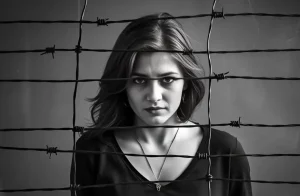The UN Committee on the Elimination of Discrimination against Women (CEDAW) has raised serious concerns about gender rights violations in Belarus, Belize, Congo, the Democratic Republic of the Congo, Liechtenstein, Luxembourg, Nepal, and Sri Lanka. The findings, released after the committee’s latest session, highlight critical issues such as suppression of activists, poor detention conditions, harmful traditional practices, and gender-based violence.
Crackdown on Women’s Rights Defenders in Belarus
CEDAW condemned Belarus for shrinking civic space and severe reprisals against women human rights defenders. Reports cite surveillance, forced exile, and politically motivated detentions. The committee urged Belarus to repeal laws restricting activists’ work and investigate deaths of female detainees.
Belize’s Legal Loopholes and Land Rights Disputes
Belize was criticised for lacking comprehensive anti-discrimination laws. CEDAW recommended constitutional amendments and legislative reforms, particularly regarding gender and ethnic discrimination. The committee also called for recognising Mayan women’s collective land rights and ensuring their participation in land-use decisions.
Education and Reproductive Rights Challenges in Congo
Congo’s education system fails nearly 60% of girls, with lower retention rates among Indigenous and disabled students. Lack of separate toilets and exclusion from mainstream schools were flagged as barriers. The committee also highlighted high rates of teenage pregnancies, HIV/AIDS, and unsafe abortions, urging the government to legalise abortion in cases of rape and incest.
Conflict-Driven Sexual Violence in the Democratic Republic of the Congo
Sexual violence in the DRC remains rampant, with 94% of victims being women and girls. The committee condemned the use of rape as a weapon of war and called for a comprehensive strategy, including funding from mining revenues, to combat the issue. Women’s exclusion from peace talks was also criticised, with demands for gender-responsive conflict resolution.
Liechtenstein’s Abortion Laws and Political Gender Gap
Liechtenstein faces criticism for criminalising abortion, forcing women to seek procedures abroad. CEDAW urged the government to legalise abortion in specific cases and decriminalise it entirely. It also called for mandatory gender quotas to boost female political representation.
Luxembourg’s Outdated Legal Distinctions
The committee criticised Luxembourg for retaining legal distinctions between “legitimate” and “natural” children. While recent laws have banned virginity certificates and hymenoplasty, the country still allows non-consensual surgeries on intersex individuals. CEDAW urged a complete prohibition of such procedures and stronger rights-based healthcare protocols.
Nepal’s Failure to Enforce Women’s Rights Laws
Despite laws against harmful practices like menstrual segregation (Chhaupadi), dowry, and child marriage, Nepal struggles with enforcement. CEDAW called for stricter implementation, educational programmes, and awareness campaigns targeting community leaders. It also condemned a legal provision that reduces sentences for sexual violence perpetrators and urged comprehensive reparations for conflict-era victims.
Gender-Based Violence and NGO Restrictions in Sri Lanka
Sri Lanka’s gender violence statistics are alarming, with at least 20% of women experiencing intimate partner abuse. Marital rape remains uncriminalised, and prosecution rates are low. CEDAW recommended urgent legal reforms and awareness campaigns. The committee also criticised growing restrictions on NGOs, urging the government to remove bureaucratic obstacles limiting women’s rights organisations.
Global Gender Rights: The Road Ahead
During its session, CEDAW also discussed gender stereotypes and their role in perpetuating discrimination. In April, the committee will hold a Pacific Technical Cooperation Session in Fiji, engaging with nations on CEDAW’s implementation.
With these latest findings, the pressure is on for the respective governments to address gender rights violations and implement policy changes that ensure equal rights for women and girls.



